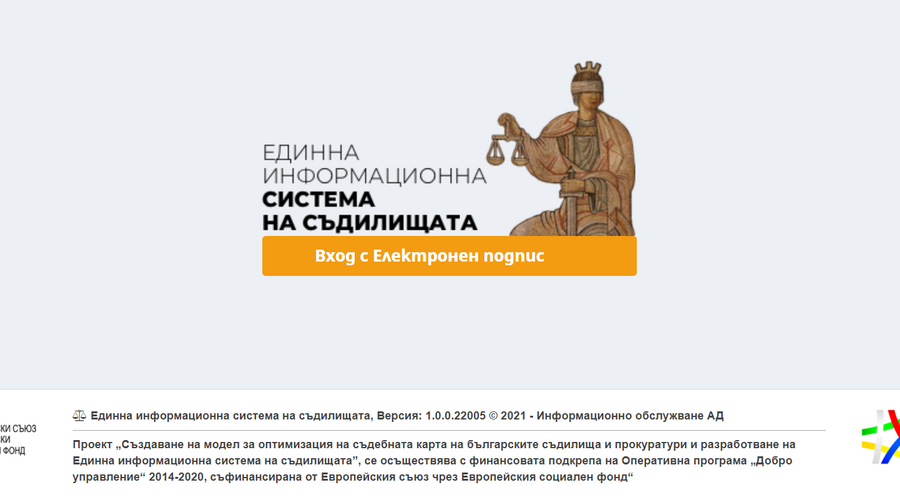Share

The number of registered electronic cases in the Court Case Management System (CCMS) spiked to 261,514. The news was shared alongside the presentation of the project to the Supreme Judicial Council. The system was launched on June 25, 2020 and covers all 153 courts in Bulgaria (regional courts, district courts, appellate courts, Specialized Criminal Court, Appellate Specialized Criminal Court, military courts, Military-Appellate Court and the Supreme Court of Cassation). About 69% of the included cases are civil, 28% are criminal, and rest are commercial and corporate cases. The system operates at its full functionality in all courts.
It should be noted that according to the objectives set in the draft of Operational Programme Good Governance, 250,000 cases should be filed in the CCMS by 2023, and the volume was reached in the first year of operation of the system. Until now, the CCMS has 9,928 registered users, including 1,947 judges, 4,352 judicial staff, 3,046 jurors and 583 summonses.
"Through the CCMS, we have set the required technical tools and postulates for unification of work processes and application of common rules for work and practices in case managements," said Snezhanka Smilkova, Head of Information and Communication Technologies at Information Services. She further noted that the system allows real time case observation, even before the actual paper cases are received in the relevant court. The CCMS guarantees transparency, publicity and traceability in the management of court cases, optimized and reliable electronic case management, while promoting the required data security to protect information.
The CCMS is a case management information system that integrates the entire case management process. The latter includes registration of initiating documents, the further initiation of the case, random distribution of the judge-rapporteur, management of the hearings, enactment and depersonalization of the acts, court statistics, workload of the judges, financial management of the cases, management of the summoning activity, etc.
The system allows centralized storage of files in electronic format, which significantly reduces the time to create and manage an electronic file folder. When the case moves between the instances, the created electronic folders of the cases are only "transferred" to the next instance, which significantly saves work in each subsequent court where a case is being filed. It creates the opportunity to work remotely from anywhere in the world through a highly secured channel. Access to the system is possible only through a qualified electronic signature (QES).
The CCMS provides an opportunity for easy access to cases for parties through the Integrated e-Justice Portal (IEJP). Since the launch of the CCMS, the interest in the e-portal has doubled. For the period 2015-2020, the registered users were 3100, and by July 2021 they exceed 6 800, which proves that due to CCMS launching citizens' access to the justice system has been significantly eased.
The information system of the courts increases the efficiency of the work of magistrates and court employees by saving time and optimizing the work process with e-justice. It significantly improves the efficiency of the judicial administration and reduces the time for processing the cases.
For the first time, an information system has been launched in the judiciary, which provides direct access to data and information from basic information systems and primary registers of the state administration, as well as other systems of the judiciary. The system provides real-time access to data from other information systems, including the Unified Information System for Combating Crime (UISCC), Integrated e-Justice Portal (IEJP), Single Portal for e-Justice (SPEJ), Information System for Insolvency Proceedings (ISIP), Electronic Public Dismissal Register (EPDR), etc.
The most significant benefits for citizens from CCMS include the protection of their rights by securing publicity, transparency and traceability, saving time and money to obtain up-to-date information on court cases, and more.